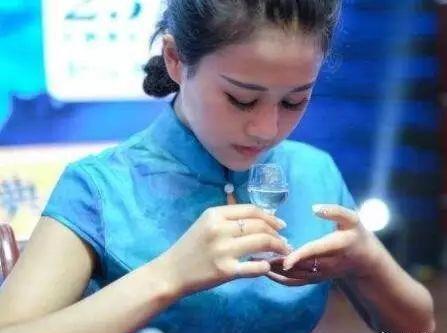Ethanol is an organic matter with the molecular formula C2H6O. At room temperature and pressure is a flammable, volatile, colorless transparent liquid with low toxicity and a special taste with a pungent and spicy taste. Ethanol and water account for 98% of the total in liquor, various other organic substances and inorganic substances account for 2%, and in organic matter and aromatic substances account for the vast majority.
To make a good wine, it is to find a way to deal with the relationship between water, ethanol and aromatic substances.

It is best to use water for brewing small molecules of water. Because small molecule water (accurately small molecules of water, less than 3 water molecules clumps of water) can penetrate the human cell wall and be absorbed by cells. Macromolecular water is directly excreted from the body by the human body. In the process of liquor production, the choice of good spring water to make wine instead of tap water to brew wine is because the proportion of small molecule water in good spring water is more, and the proportion of small molecule water in tap water is less.
The ethanol in the wine has a pungent spicy taste. How to solve this critical problem?
The solution given by Chinese liquor:
1. The more ethanol molecules in the wine, the greater the irritation. Reduces the concentration of ethanol in the wine and reduces the probability of direct contact of ethanol to the taste buds of the mouth and tongue. That's why low-grade wines in the market aren't spicy to drink.
2. Use the water molecules in the wine to bind the ethanol molecules so that the ethanol molecules cannot directly contact the drinker's mouth and taste buds. Using the molecular force of the hydrogen bond between the ethanol molecule and the water molecule, the water molecule and the ethanol molecule are associated together to form a molecular cluster, bind the degree of freedom of the ethanol molecule, so that the contact area of the ethanol molecule to the taste buds of the drinker is reduced, so that the drinker's spicy and stimulating taste is reduced, and the wine will become soft and mellow. In order to achieve this goal, first of all, in the winemaking process, the physical conditions for the full association of ethanol molecules and water molecules should be provided; secondly, sufficient association time should be provided so that the water molecules and ethanol molecules have sufficient contact time, that is, the so-called aging of wine. This is one of the reasons why an alcohol-blended blended wine is never as good as a wine, and it is one of the reasons why aged wine is better than unstalized wine.
3, liquor production process, in addition to the generation of ethanol, but also produce some acids, esters, aldehydes and other very small amounts of organic matter, ethanol molecules in the wine will be oxidized, reduced and esterified with these organic substances under certain conditions, changing the characteristics of a small number of ethanol molecules, especially in the case of aging time is long enough, ethanol, acids, esters and other organic substances to achieve a balanced state, other aroma substances increase will make the wine body spicy taste reduced.
How does Chinese liquor increase the aromatic substances of liquor?
1. In the case of not changing the nature of winemaking raw materials, change the fermentation strains, from a single fermentation strain to a fermentation population that exists at the same time as a variety of strains, so that the fermentation process of winemaking will produce more and better aromas and substances.
2. In the production process of Chinese liquor, seasoned liquor is used to achieve the effect of increasing aromatic substances. Flavored wine is a liquor liquid that is soaked in wine using certain organic materials, aroma producing materials and organic substances. Of course, there are also unscrupulous merchants who directly use flavored food additives to make flavored liquor and then mix liquor.
3, chinese liquor production process, the direct use of flavoring agents to increase the aromatic substances in the wine, Chinese liquor in the production practice to find a large number of flavoring agents available for winemaking production, such as: phenolic substance 4-ethyl healing xylacol is the sauce flavor of the sauce-flavored liquor; 2-methylpyrazine, etc. is the aging taste of the sauce-flavored liquor; 5-methylpyrazine is the koji aroma of the koji-type liquor; sulfur-containing compounds: dimethylthioacetic acid ethanol is the cellar aging aroma of liquor; butyrate butyrate is the cellar aroma. To improve the aromatic substances of liquor, you can directly add such chemical food additives, which is the highest learning of Chinese liquor.
4. The aging of the wine causes the organic substances in the wine to undergo oxidation, reduction and esterification reactions to generate new aromatic substances. Chinese liquor is the use of very sealed containers for the aging of wine, these reactions can only be carried out in the liquid of the wine, the reaction is very slow, so good wine must be aged for more than 5 years.